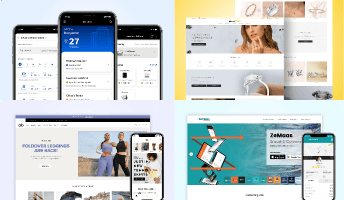Patenting Your Mobile App: What You Need to Know Before You Begin
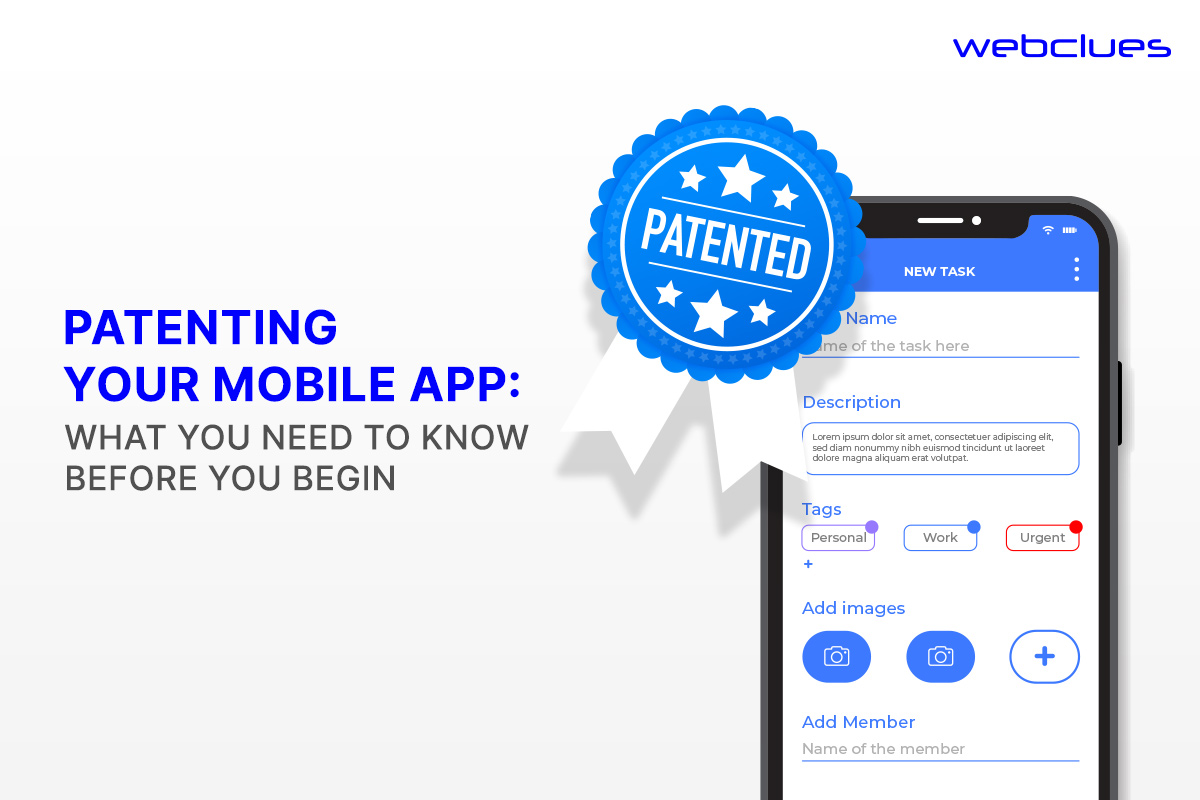
Are you an aspiring entrepreneur or startup with a brilliant mobile app concept? If yes, then this blog is for you. Protecting your intellectual property is crucial to prevent competitors from stealing your idea. By patenting your mobile app, you can safeguard your intellectual property rights and earn revenue by licensing or selling your invention. But where do you start?
In this blog post, we'll walk you through the steps to patent your mobile app idea, from finding a patent attorney to submitting your application. Let's dive in and get your app idea protected!
What is a Patent?
A patent is a legal document granted by a government that gives an inventor the exclusive right to make, use, and sell an invention for a specified period of time, usually 20 years from the date of filing the patent application. A patent provides the inventor with the right to exclude others from using, making, or selling the invention without their permission. In exchange for this exclusive right, the inventor must disclose the details of the invention in a written patent application, which is published and made available to the public.
Patents are intended to encourage innovation and promote progress by granting inventors a temporary monopoly on their inventions and allowing them to profit from their ideas.
The Process of Securing a Patent for a Mobile App
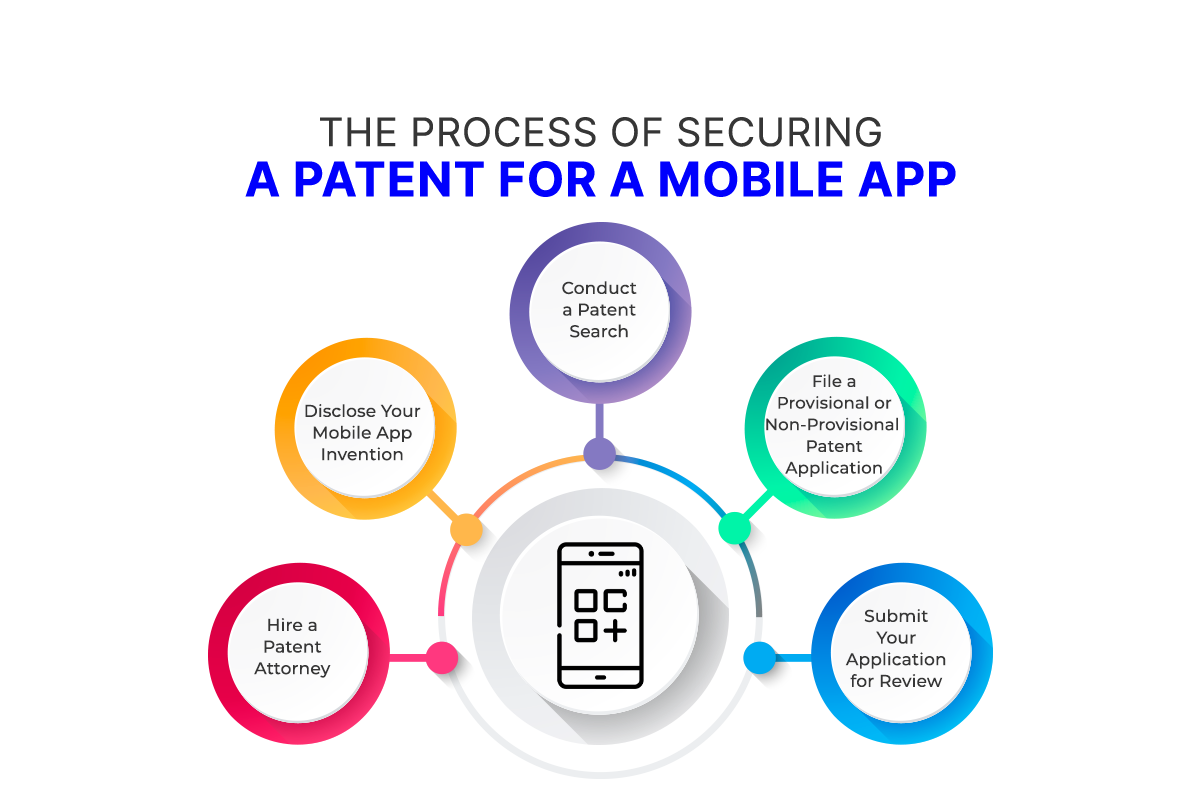
Hire a Patent Attorney: The first step in securing a patent for your mobile app is to hire a qualified patent attorney. They can help guide you through the patent process, provide legal advice, and ensure that your application meets all the necessary requirements.
Disclose Your Mobile App Invention: In order to obtain a patent, you must first disclose your invention to the patent office. This can be done by filing a written description of your app's features and functions, along with any drawings or diagrams that may be necessary.
Conduct a Patent Search: It's important to conduct a thorough patent search to determine if any similar patents already exist. This can help you avoid wasting time and money pursuing an idea that has already been patented, and can also help you identify potential legal issues.
File a Provisional or Non-Provisional Patent Application: Depending on your needs, you may choose to file either a provisional or non-provisional patent application. A provisional application provides a quick and affordable way to establish a filing date, while a non-provisional application is a more comprehensive application that can lead to a granted patent.
Submit Your Application for Review: After filing your patent application, it will be reviewed by a patent examiner. The examiner will evaluate your application and determine whether your invention meets the necessary requirements for patentability. If your application is approved, you will receive a granted patent that gives you exclusive rights to your mobile app idea.
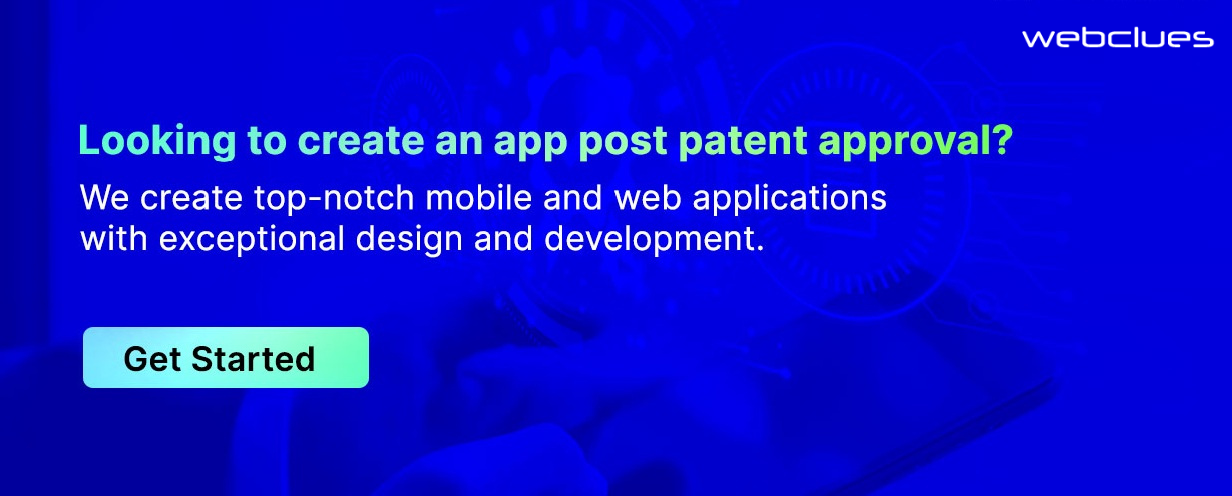
What are the advantages of securing a patent for a mobile app?
The benefits of patenting an app are numerous, and they can be critical to the success of a mobile app idea. Here are some of the most significant advantages of patenting an app:
Exclusive Rights: Patenting an app grants the developer exclusive rights to make, use, and sell the app for a specified period, typically 20 years from the date of filing.
Protection from Infringement: Patenting an app provides protection against infringement from competitors. The patent holder can take legal action against anyone who uses or sells a similar app without permission.
Increased Marketability: Patenting an app can increase its marketability and attract investors. A patent provides a competitive edge and can make the app more valuable to potential buyers or investors.
Revenue Generation: A patented app can generate revenue in several ways, including licensing fees, selling the patent, or using the app to generate income.
Long-term Investment: Patenting an app is a long-term investment that can pay off in the long run. It provides protection and can increase the value of the app over time.
Brand Recognition: A patented app can enhance brand recognition, as it distinguishes the app from competitors and can increase consumer confidence in the product.
What are the Different Types of Patent Applications?
There are different types of patent applications that can be filed depending on the circumstances of the invention and the goals of the applicant. The main types of patent applications are:
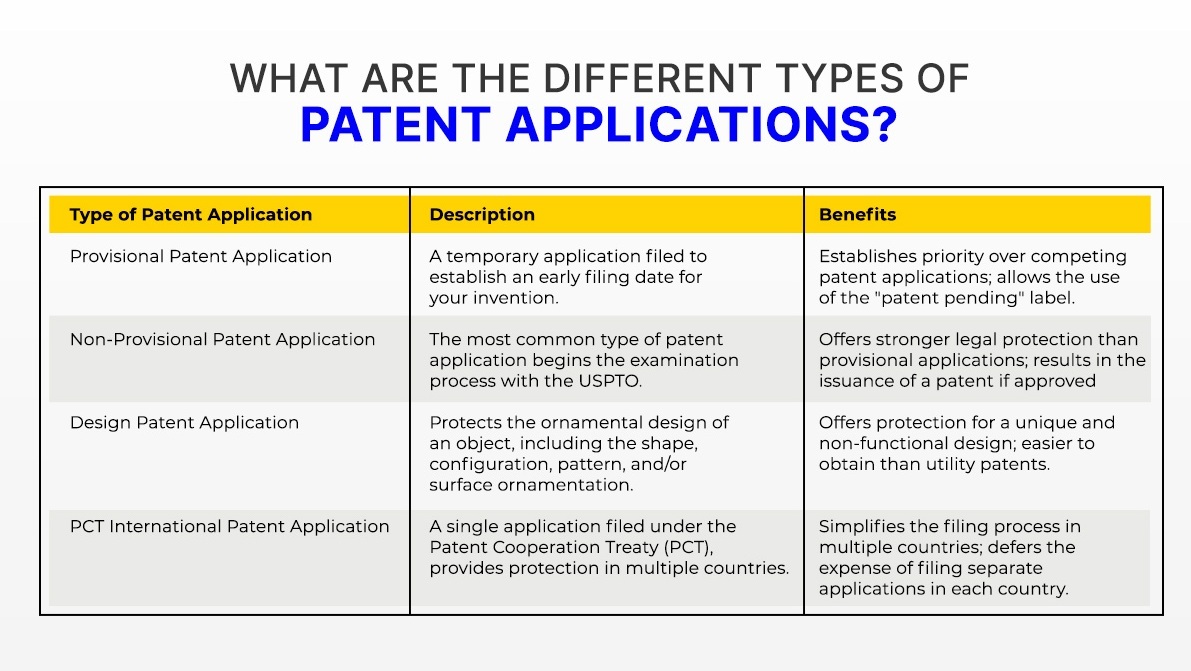
What are the Qualifications for Patent Eligibility?
- Novelty: The invention must be new and not known or used by others.
- Non-obviousness: The invention must not be obvious to a person having ordinary skills in the relevant field.
- Utility: The invention must have a useful purpose and be capable of performing a function.
- Enablement: The invention must be described in sufficient detail so that a person having ordinary skills in the field can make and use it.
- Patentable subject matter: The invention must be a process, the machine, manufacture, or composition of matter that is eligible for patent protection.
Meeting these requirements can be complex, and it is recommended to work with a patent attorney or agent who has expertise in the field of mobile app development and patent law.
How Much Does It Cost to Patent a Mobile App?
The cost of patenting a mobile app varies depending on the type of patent. Provisional patents typically cost between $2000 to $5000 and provide a one-year validity. After this period, you can refine your app and launch it to gauge its success. Non-provisional patents range from $10,000 to $15,000 and go through an administrative review process to determine if they qualify for a patent. The cost of obtaining a patent may seem high, but it can be a worthwhile investment to protect your app's intellectual property and increase its value in the market.
If you are working with a Mobile App Development Company, they may be able to guide you through the process and help you estimate the cost.
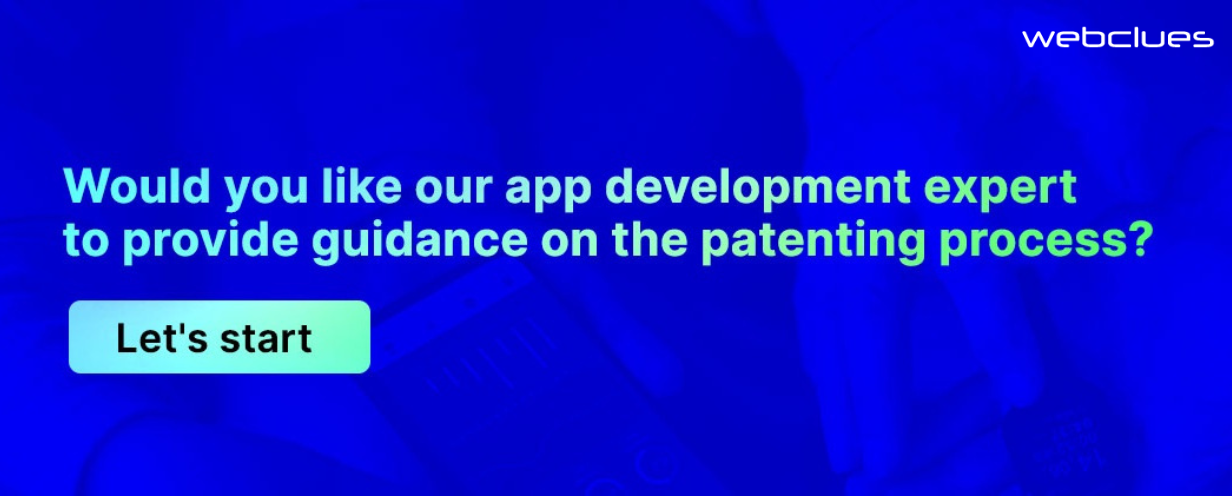
How Much Time Does It Require For Patenting a Mobile App?
- The process of patenting a mobile app can take anywhere from one to three years, depending on various factors. The time frame can vary based on the complexity of the app, the backlog of patent applications at the USPTO, and the type of patent application filed.
- The first step in the process is to conduct a patent search to ensure that the idea is not already patented. Once the search is done, the inventor can file a provisional patent application, which is usually faster and less expensive than a non-provisional application.
- After filing the application, the USPTO will review it, and the inventor may need to respond to any office actions or objections raised by the examiner. If the patent is granted, it will be published, and the inventor will need to pay maintenance fees to keep the patent in force.
- Overall, the process of patenting a mobile app can be lengthy and complicated, so it's essential to work with a qualified patent attorney to ensure that everything is done correctly and efficiently.
What are the alternatives to app patents?
While patents are an effective way to protect your mobile app idea and prevent others from copying it, there are other alternatives that you can consider. Some of these alternatives include:
- Trade secrets: Instead of filing for a patent, you can keep your app idea a secret and use it as a competitive advantage. This can be especially useful for app ideas that are difficult to reverse engineer.
- Copyrights: You can protect the original code and content of your app using copyrights. This prevents others from copying your code or using your content without your permission.
- Trademarks: If you have a unique name or logo associated with your app, you can use trademarks to protect it from being used by others.
Non-disclosure agreements: You can ask people you work with, including developers and investors, to sign non-disclosure agreements to prevent them from sharing your app idea with others.
In conclusion, patenting a mobile app is a crucial step for protecting your intellectual property and ensuring that your hard work and innovative ideas are not stolen or copied by others. While the process of patenting can be time-consuming and expensive, it is a worthwhile investment in the long run. Additionally, there are alternative options such as trade secret protection and copyrighting that can be considered based on individual circumstances. Ultimately, it is important to consult with a qualified patent attorney to understand the best approach for protecting your mobile app idea.
Build Your Agile Team
Hire Skilled Developer From Us
Looking for comprehensive mobile app development services?
A mobile application is one of the most crucial aspects of your digital presence. Contact WebClues for all-inclusive mobile app development services.
Get a Free ConsultationOur Recent Blogs
Sharing knowledge helps us grow, stay motivated and stay on-track with frontier technological and design concepts. Developers and business innovators, customers and employees - our events are all about you.
Contact Information
Let’s Transform Your Idea into Reality - Get in Touch
India
Ahmedabad
1007-1010, Signature-1,
S.G.Highway, Makarba,
Ahmedabad, Gujarat - 380051
Rajkot
1308 - The Spire, 150 Feet Ring Rd,
Manharpura 1, Madhapar, Rajkot, Gujarat - 360007
UAE
Dubai
Dubai Silicon Oasis, DDP,
Building A1, Dubai, UAE
USA
Delaware
8 The Green, Dover DE, 19901, USA
New Jersey
513 Baldwin Ave, Jersey City,
NJ 07306, USA
California
4701 Patrick Henry Dr. Building
26 Santa Clara, California 95054
Australia
Queensland
120 Highgate Street, Coopers Plains, Brisbane, Queensland 4108
UK
London
85 Great Portland Street, First
Floor, London, W1W 7LT
Canada
Burlington
5096 South Service Rd,
ON Burlington, L7l 4X4

